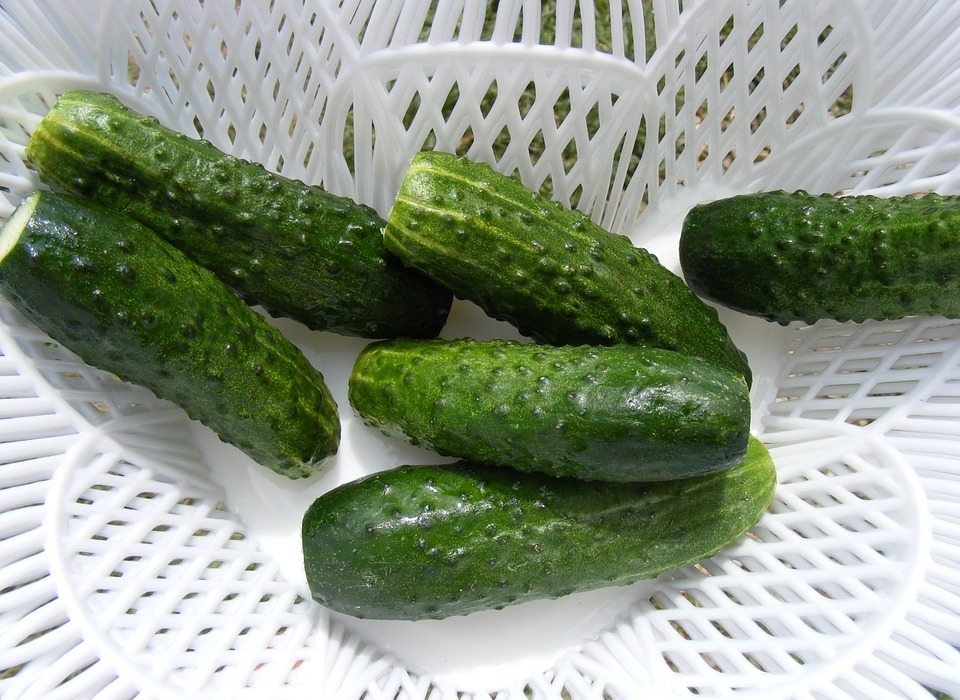This comprehensive guide explores the safety and suitability of cucumbers for cats, providing a detailed analysis of their nutritional value, potential risks, and practical advice for feline owners. We will delve into the scientific evidence, address common concerns, and offer expert recommendations to ensure your cat's well-being.
Part 1: Exploring the Nutritional Profile of Cucumbers

1.1. Primarily Water: A Source of Hydration?
Cucumbers are largely composed of water, leading some to consider them a potential source of hydration for cats. However, it's crucial to remember that cats primarily obtain fluids through drinking water, and cucumbers shouldn't be seen as a primary hydration source.
1.2. Vitamin and Mineral Content: A Minor Contribution
Cucumbers do contain small amounts of vitamins and minerals, including vitamin K, vitamin C, potassium, and magnesium. While these nutrients are essential for maintaining overall health, the quantities present in cucumbers are unlikely to significantly impact a cat's nutritional needs.
1.3. Fibre Content: A Potential Digestive Challenge
Cucumbers contain a moderate amount of fibre, which can be beneficial for digestive regularity in humans. However, cats have shorter digestive tracts and are less equipped to break down fibrous foods. This can lead to digestive issues, particularly if consumed in large quantities.
Part 2: Unveiling Potential Risks Associated with Cucumbers

2.1. Digestive Upset: The Risk of Diarrhoea and Vomiting
The high fibre content in cucumbers can lead to digestive upset in cats, potentially causing diarrhoea, vomiting, and constipation. This is due to the cat's inability to effectively break down the fibre, leading to irritation and discomfort in the digestive system.
2.2. Allergic Reactions: A Rare but Possible Concern
While uncommon, cats can experience allergic reactions to certain foods, including cucumbers. Symptoms of an allergic reaction might include hives, swelling, itching, and difficulty breathing. If your cat exhibits any of these signs after consuming cucumber, seek immediate veterinary attention.
2.3. Pesticide Residues: A Threat to Feline Health
Commercially grown cucumbers may be treated with pesticides, which can be harmful to cats. Thoroughly washing cucumbers before offering them to your cat is crucial to mitigate this risk. Opting for organically grown cucumbers whenever possible further minimises pesticide exposure.
Part 3: Expert Guidance on Feeding Cucumbers to Cats
3.1. Moderation: The Key to Avoiding Digestive Issues
If you decide to offer your cat cucumbers, it's essential to do so in moderation. Small amounts are unlikely to cause harm, but excessive consumption can lead to digestive problems. Observe your cat's reaction and adjust accordingly.
3.2. Gradual Introduction: A Safe Approach
When introducing any new food to your cat, gradual introduction is crucial. Start with a tiny piece of cucumber and monitor your cat's response closely. If they show no signs of adverse effects, you can slowly increase the amount over several days.
3.3. Organic Choices: Minimising Pesticide Risks
Choosing organic cucumbers whenever possible is advisable to reduce the risk of pesticide exposure. Organic farming practices avoid the use of harmful chemicals, protecting your cat from potential toxicity.
3.4. Veterinary Consultation: Seeking Tailored Advice
If you have any concerns about feeding cucumbers to your cat, consult your veterinarian. They can provide tailored advice based on your cat's individual health needs, breed, age, and any pre-existing medical conditions.
Part 4: Exploring Alternatives to Cucumbers for Feline Delights
4.1. Cat Grass: A Safe and Enjoyable Option
Cat grass is a safe and healthy alternative to cucumbers for cats. It provides fibre and helps with digestion, and cats often enjoy chewing on it. Cat grass can also provide a source of entertainment, satisfying their instinctual need to nibble on plants.
4.2. Water-Rich Vegetables: A Range of Healthy Choices
Other water-rich vegetables that cats can safely consume in moderation include carrots, green beans, and broccoli. These vegetables provide essential vitamins and minerals and can be enjoyed as occasional treats.
Part 5: Understanding the Role of Cucumbers in a Cat's Diet
5.1. Not a Primary Food Source: Prioritising Balanced Nutrition
While cucumbers can be offered as an occasional treat, they should not be a primary source of nutrition for your cat. Cats require a balanced diet of commercially formulated cat food that meets their specific nutritional needs.
5.2. Addressing Nutritional Deficiencies: Consulting a Veterinarian
If you suspect your cat is lacking certain nutrients, consult your veterinarian. They can identify any potential deficiencies and recommend appropriate dietary adjustments or supplements.
Part 6: Understanding Common Concerns and Their Solutions
6.1. Can Cats Eat Cucumber Peel? A Question of Digestibility
Cucumber peel is generally safe for cats, but it's best to remove the peel before offering cucumber to your cat. The peel can be more difficult to digest and may contain higher levels of pesticide residues.
6.2. Cucumbers for Urinary Tract Problems: Addressing a Misconception
Cucumbers are not specifically known to benefit cats with urinary tract problems. While their high water content can contribute to hydration, it's not a primary solution for urinary tract issues.
6.3. Encouraging Palatability: Tips for Picky Eaters
Some cats may find cucumbers bland. You can try offering cucumber slices with a small amount of cat-safe flavouring, such as a sprinkle of catnip or a tiny amount of tuna juice. However, it's essential to use these additives in moderation and ensure they are safe for your cat's consumption.
6.4. When to Worry: Recognising Signs of Distress
If your cat has eaten a small piece of cucumber and shows no signs of distress, there is no need to worry. However, if you notice any symptoms such as vomiting, diarrhoea, lethargy, or changes in appetite, consult your veterinarian immediately.
6.5. Setting Safe Limits: Frequency and Quantity
Cucumbers should be offered as an occasional treat, no more than a few times per week. The quantity should be small, starting with a tiny piece and observing your cat's reaction.
Part 7: A Final Word on Responsible Cat Care
Providing your cat with a safe and nutritious diet is a crucial part of responsible pet ownership. While cucumbers can be a fun and occasional treat, they should never replace a balanced diet of commercially formulated cat food. Consult your veterinarian for personalized advice on your cat's dietary needs and potential risks associated with specific foods.
Remember, by understanding the potential benefits and risks associated with cucumbers and by following expert guidance, you can ensure your cat enjoys a healthy and happy life.
Everyone is watching

Are Cat Ribs Flexible? Understanding Their Anatomy
CATS & KITTENSThis article delves into the fascinating world of feline anatomy, exploring the flexibility of cat ribs and ho...

Can Cats Eat Bananas? (Everything You Need to Know)
CATS & KITTENSThis article dives into the intriguing question of whether cats can safely enjoy the sweet, yellow fruit, bana...

Cat Lifespan: How Long Do Cats Live?
CATS & KITTENSThis comprehensive guide explores the factors influencing the lifespan of our feline companions, providing ins...

Can Cats Get COVID-19? What You Need to Know
CATS & KITTENSThis article will delve into the fascinating world of feline COVID-19 susceptibility. We'll explore whether ca...

Can Cats Eat Eggs? A Complete Guide to Egg Safety for Your Feline Friend
CATS & KITTENSWhen it comes to treating our furry companions, we all want to ensure we're doing what's best for them. Eggs...
